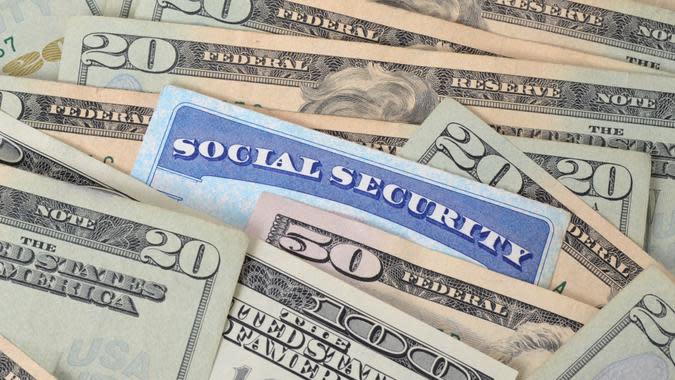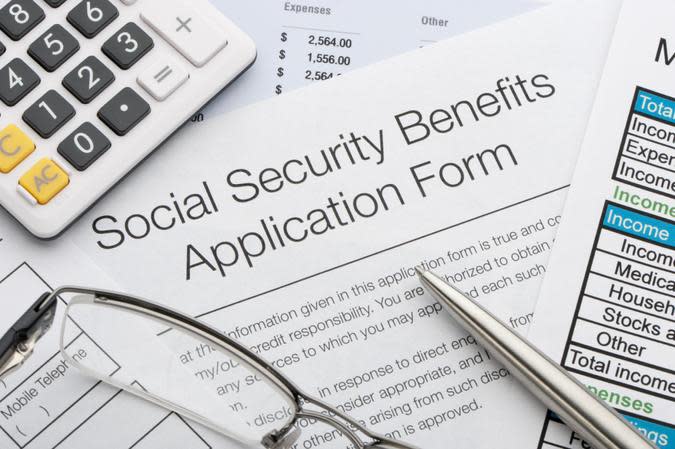6 Reasons Your Social Security Check Might Be Lower Than You Expected

In most cases, your Social Security income is predictable.
Using a formula that takes into account your entire working career and the age at which you file for benefits, the Social Security Administration calculates what your exact payout will be. You can access this information at any time on the Social Security website at www.ssa.gov.
Find: 20 Best Places To Live on Only a Social Security Check
Learn: The Downsides of Retirement That Nobody Talks About
However, in some cases, you may not receive the full payout that you're expecting. Here are some factors that can cause your Social Security check to be lower than expected.

Medicare Premiums
One of the benefits of retiring is that you may be eligible for Medicare benefits, and a portion of those may be free. As long as you've paid enough qualifying Medicare taxes while you were working, hospital care, which is covered under Medicare Part A, is typically free. However, if you're looking for additional coverage for outpatient and diagnostic services, you'll need to enroll in Medicare Part B. This costs a premium, and it is taken from your Social Security check.
POLL: Are You Concerned That Social Security Benefits Will Be Reduced During Your Lifetime?
The amount of the Part B premium depends on your income. For singles earning $91,000 or less, or joint filers with income of $182,000 or less, the monthly premium is $170.10. As your income increases, the premium can jump to $238.10, $340.20, $442.30, $544.30, or $578.30 for those earning $500,000 or above ($750,000 for joint filers). In other words, depending on our income, Medicare premiums can put a serious dent in your Social Security check.

Creditor Attachment
If you owe certain unpaid debts, creditors may legally attach your assets. For example, if you can't make your car payments any more, the bank holding your loan might repossess your car.
In other cases, creditors may be able to garnish your wages. While Social Security payments for the most part are protected, certain high-ranking creditors may be able to lay claim to them. Chief among those are the IRS, which can take some of your Social Security check to pay back taxes.
Defaulted student loans, unpaid alimony or child support may also result in reduced Social Security checks. Regardless of the creditor, however, your first $750 of monthly Social Security checks are protected by law.

Early Filing
One of the sure-fire ways to reduce your Social Security check is to claim benefits early.
For those born in 1960 or later, the Social Security Administration defines full retirement age as 67. Although you can claim benefits as early as age 62, they will be permanently reduced, by 30%.
In other words, if you're entitled to a monthly benefit of $1,700 at age 67, you'll receive just $1,190 per month if you claim your benefit at age 62. Of course, you will end up receiving 60 more monthly payments over the course of your life if you claim at 62 instead of 67, so you may or may not end up with more money in the long run. But one thing is for certain: Your checks will be permanently reduced no matter how long you live.

Late Filing
Just as early filing can permanently reduce your Social Security checks, filing after age 67 can raise them in perpetuity. Those who file at age 70, for example, will see a permanent bump in their checks of 24%.
However, if you file for benefits after your full retirement age, your check doesn't immediately kick in at the higher level. Although you'll receive the past credits that you are entitled to immediately, your higher benefits won't kick in on a monthly basis until January of the following year. Thus, if you file in February and anticipate receiving a higher monthly check, you'll have to wait 11 months until those benefits actually kick in.

Taking a Lump Sum for Delayed Benefits
If you wait after full retirement age to claim benefits, your check will increase for the rest of your life. You also have the option of filing for a lump sum of up to six months of those benefits. For example, if you file at age 70 and your monthly benefit at full retirement age is $1,500, you can claim a lump sum of up to $9,000.
However, by taking this amount as a lump sum, it won't be included in your future monthly checks. Thus, the 24% increase you might be expecting monthly at age 70 will be slightly reduced.

You're Still Working
If you collect Social Security but continue to work before your full retirement age, the Social Security Administration will deduct $1 from your check for every $2 you earn above a specified limit. For 2022, that earnings limit is $19,650. So, if your usual check would be $1,500 but you earned $29,650 in income for the year, your payment would drop to about $1,083.33.
In the year you reach retirement age, the deduction changes to $1 for every $3 you earn above $51,960. The month you reach full retirement age, however, the deductions stop.
More From GOBankingRates
Check Out Readers' Favorite Small Businesses in Our 2022 Small Business Spotlight
Looking To Diversify in a Bear Market? Consider These Alternative Investments
This article originally appeared on GOBankingRates.com: 6 Reasons Your Social Security Check Might Be Lower Than You Expected
